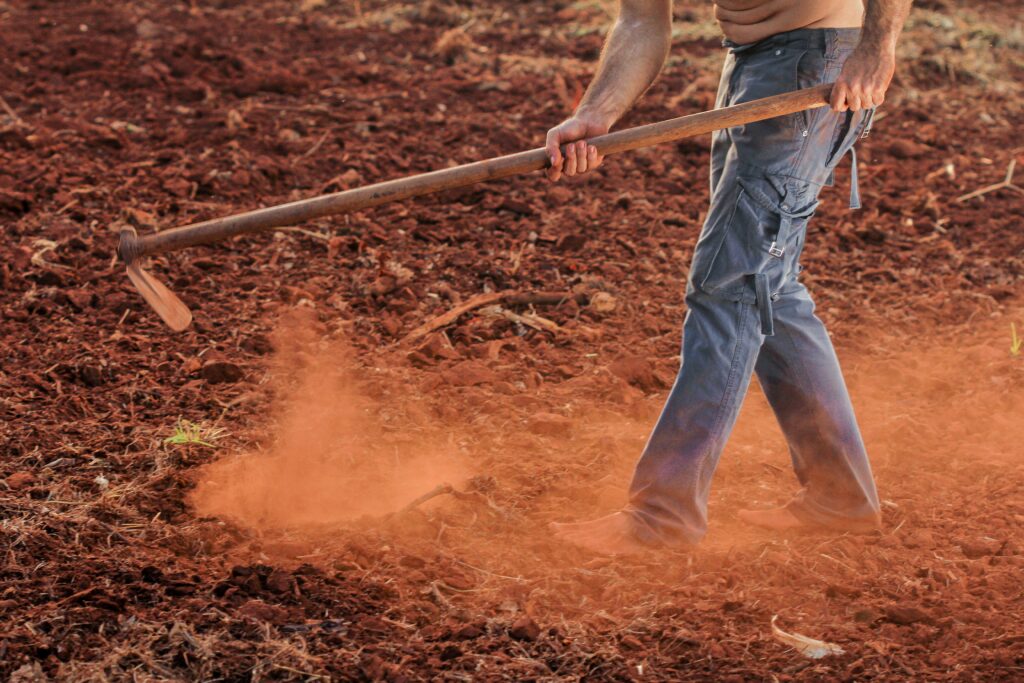
By Bongiwe Zwane-Maseko
Women are multi-taskers of note, but Lizzie Msane takes it to a whole new level.
Besides being a young mother to an energetic toddler, she is also a master’s student, a full-time midwifery practitioner at one of the country’s largest hospitals, and an agri-preneur. One wonders where she finds the time to do all this and more, but she says: “Where there is a will, there is always a way.”
Msane was born with green fingers. Her late father was an avid farmer, and she was exposed to everything he did.
“Farming has always been my father’s passion. He did not receive any formal training but he was a good farmer. He worked from farm to farm in our area and the last farm he worked for before passing on was the chief’s farm in Kubuta, eNgobolweni. Seeing how beautiful his crops were and how consistent he was when farming I was inspired and immediately fell in love with farming. I can say that farming has always been a part of who I am because wherever I go, I always leave a garden behind. However, I never thought of commercial farming until 3 years ago in 2019. I started using land that was readily available at home, my first commercial crops were maize meal and groundnuts which were highly successful so I started leasing land from our neighbours so I could produce more. To me, farming is a way of connecting with my parents who passed on 17 years ago and that is where I get my motivation,” she says.
She says she has a farm at her family home in Kubuta, which produces sweet potatoes and groundnuts, and another one in Hlatikulu, where she grows vegetables such as red onions, beetroot, spinach, strawberries, and chillies, which she sells to locals in Hlatikulu and bulk to vendors in the area.

“My short-term goal is to grow at least two crops to maximise space which will enable me to produce in bulk and put me in a position to supply bigger shops. I recently joined Finclude, an international fund for agricultural development, which helps farmers transition from subsistence to commercial farming. Through proper training from Finclude, we are currently producing beetroot for NAMBOARD and the project is a success so far. Over the years, gardening has always been a way of relieving stress which is why I do not mind farming at any given time it is my dream to continue with farming even after I retire from my nursing career so I can continue growing my late father’s legacy,” Msane says.
She adds that one of her greatest achievements so far is the joy of seeing her produce and there is no greater feeling for her than to see the transition of her seedlings to fully grown ready-to-eat crops. She says she received any formal training in farming so each time she harvests, it is always a proud moment for her.
Msane recently won an award for the Swazi Boy TV agriculture personality of the year, which she says has been the highlight of her year. She says she is grateful for the support of the people in her life, who constantly encourage her to focus on her dreams.
She says her helper, who assists her in taking care of her son, is part of her family as she would never be able to carry her workload without her.
“I am also grateful for my brother’s support in running the farm as he is available for the better part of the day, while I can only spend a few hours a day on this task,” she says.
She says she hopes to become a lecturer someday soon but her first love will always be tending to the soil and making it yield enough produce for Emaswati’s benefit. She adds that investing in a large farm would help her produce in massive quantities and that is on her to-do list for the next five years. This is what a typical day looks like for her;
| TIME | TASK |
| 4 a.m. | Wake up, thank God for the day, go through social media, and emails, and finalise my plans for the day. |
| 5 a.m. | Walk to the farm (it takes about 20 minutes on foot). I normally water crops that can be affected by high temperatures and attend to other arising issues as time allows |
| 6.30 a.m. | prepare to go to work as a midwife at the maternity ward – a day’s work involves taking care of patients in labour, delivery, and high care |
| 7.30 a.m. | Start my shift |
| 4 p.m. | Return to the farm for planting, weeding, and other crop management activities that need to be undertaken |
| 6 p.m. | Return home, shower, rest, and spend quality time with my son |
| 8 p.m. | Retire for the day |






